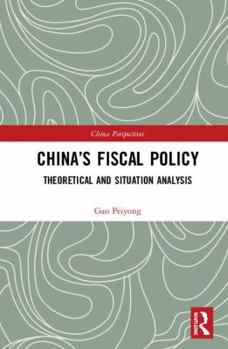China's Fiscal Policy: Theoretical and Situation Analysis
Fiscal policy has always been a primary measure of macroeconomic control. The fiscal revenue and expenditure can influence the operation of the whole economic and social activities by changing the existing GDP distribution pattern, affecting the consumption and investment of enterprises and people, etc.
Within the framework of macroeconomic analysis, this book reviews the evolution of China's fiscal policy, and the main changes China's economy has experienced since 1990s. To begin with, it makes an empirical research of China's national debts, including their relationship with macroeconomic regulation and total social demand. Besides, it examines the economic effect mechanism of national debts issuance. Then it focuses on the taxation issues, elucidating the sources of tax revenue growth and the judgments on tax burden. The issue of tax reduction is also covered, especially its complexity in China. Lastly, it provides insights into China's fiscal tendency, changes of macroeconomic policies, and financial operation in the context of the "New Normal".
Scholars and students in economics, finance and Chinese economic studies will be attracted by this book. Also, it will appeal to readers interested in modern Chinese economic history.





